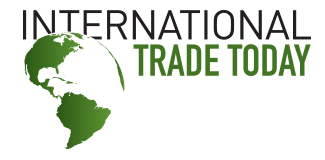Solar Panel Maker Seeks Extension of China Solar Cells Duties to Malaysia, Thailand, Vietnam, Cambodia
A U.S. solar panel manufacturer on Feb. 8 filed another request for an anti-circumvention inquiry on solar cells from third countries made from Chinese inputs, including polysilicon wafers and ingots. Auxin Solar says solar cell imports from Malaysia, Thailand, Vietnam, and Cambodia are circumventing the antidumping duty and countervailing duty orders on crystalline silicon photovoltaic cells from China (A-570-979/C-570-980), in a request filed months after a similar petition from a group of anonymous solar producers was rejected by the Commerce Department.
Auxin Solar says Chinese solar companies have “continued their assault” on the U.S. solar industry since AD/CVD orders were imposed in 2012, “this time from third country export platforms. Their relentless predatory pricing has been fueled by China’s non-market subsidization of the upstream solar supply chain, intellectual property theft conducted by China’s People’s Liberation Army ('PLA'), and inhumane forced labor practices,” Auxin Solar said.
The “minority- and woman-owned, U.S.-headquartered, and U.S.-operated manufacturer” said the value of U.S. solar cell imports from China declined by 86% during the period, from $2.8 billion in 2011 to $394 million in 2020. At the same time, imports from the four countries named in the request increased by 868%, from $578 million to $5.6 billion. “Chinese imports have been replaced entirely by these imports that now account for almost all imports of CSPV cells and modules,” the petition said.
“To be clear, each of these examples of assembly in Malaysia, Thailand, Vietnam, and Cambodia involve exporters that do not produce polysilicon ingots or wafers -- the key upstream inputs in CSPV cells and modules -- in those countries, but instead sourced these and other necessary materials and inputs from China using related party supply chains,” Auxin Solar said.
The Commerce Department rejected a similar request for an anti-circumvention inquiry late last year, but Auxin Solar’s request does not request anonymity, which was the reason given by Commerce for rejecting the request by the American Solar Manufacturers Against Chinese Circumvention (see 2111150059). Auxin Solar also requests the inquiries be conducted country-wide, rather than focusing on certain exporters. “Auxin Solar’s petition for an anti-circumvention inquiry forecloses these bases for not initiating an investigation,” the request said.
The Solar Energy Industries Association, which opposed the A-SMACC’s bid for an anti-circumvention inquiry, also said the previous request was an attempt to avoid normal procedures and requirements in AD/CVD investigations including proving injury at the International Trade Commission, yet still impose duties on a large quantity of imports from several newly covered countries. SEIA also said Commerce already has found the processing of wafers into cells is not “minor or insignificant,” as required to find circumvention.
Auxin Solar pre-emptively responded to some of these concerns in its request. “Various parties contend that initiating a circumvention inquiry would upend prior scope determinations because doing so would expand the scope of the Orders. But this is the point of a circumvention proceeding,” the company said.
“Second, certain parties argue that any initiation would disrupt existing supply chains, deter deployment of solar, and therefore undermine the Administration’s climate goals,” Auxin Solar said. “They present a false dilemma. According to these commentators, the United States cannot afford to miss the Administration’s climate goals so Commerce must ignore its duty in enforcing the U.S. trade remedy laws. The irony in this argument is that these commentators willfully ignore the fact that Chinese upstream supply is produced by coal-fired power plants and at the expense of human rights through forced labor, and circumventing CSPV cells and modules use at least twice as much international freight as would be used if Chinese producers were not circumventing.”
“This is yet another attempt to abuse U.S. trade laws and cause serious economic harm to the American solar industry and its 230,000 workers, shockingly, all at the behest of a single company. SEIA will aggressively oppose this petition,” SEIA President Abigail Ross Hopper said in a statement on the petition, released Feb. 9.
“As President Biden recognized just last week, there is a way to increase American manufacturing in the solar supply chain and it is an approach that has widespread support. Passing climate and energy provisions in Congress with Senator [Jon] Ossoff’s Solar Energy Manufacturing for America Act would generate tens of billions of dollars in investment in U.S. manufacturing,” she said. “This frivolous, self-interested petition could derail the entire American solar energy industry and disable efforts to tackle the climate crisis.”
“The Government of China and major Chinese producers simply refuse to trade fairly,” Mamun Rashid, CEO of Auxin Solar, said in an emailed statement. “Instead of ending rampant government subsidization of the solar supply chain and Chinese producers raising their prices to stop dumping, the Chinese simply moved to another country as an export platform to continue assaulting the U.S. market with incredibly cheap products.”
“Each of the assembly operations in Malaysia, Thailand, Vietnam, and Cambodia described in our filing involve exporters that do not produce polysilicon ingots or wafers -- the key upstream inputs in CSPV cells and modules -- in those countries, but instead sourced these and other necessary materials and inputs from China using related party supply chains,” Rashid said. “This is textbook circumvention.”



